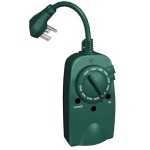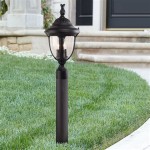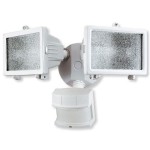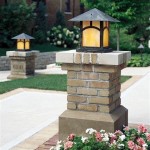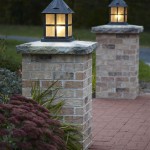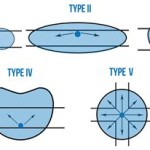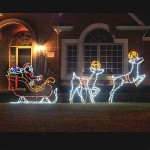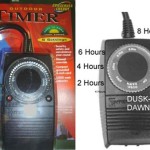Outdoor Lamp Sensor Wiring: An Essential Guide
Outdoor lighting plays a crucial role in enhancing safety, security, and ambiance around your home. Motion sensor lights are particularly useful, as they automatically illuminate when they detect movement, providing convenience and deterring intruders. To ensure proper installation and functionality, it's essential to have a clear understanding of outdoor lamp sensor wiring.
Types of Outdoor Lamp Sensors
Before wiring your outdoor lamp sensors, familiarize yourself with the different types available:
- Passive Infrared (PIR): Detects heat emitted by moving objects, making them ideal for security applications
- Microwave: Emits microwaves and detects changes in frequency caused by movement, allowing for wider coverage
- Ultrasonic: Emits ultrasonic sound waves and detects changes in the echoes caused by moving objects
- Dual Technology: Combines PIR and microwave sensors for improved detection accuracy and reduced false alarms
Wiring Components
The following components are typically involved in outdoor lamp sensor wiring:
- Sensor: The device that detects movement and triggers the light
- Light fixture: The luminaire that provides illumination
- Electrical wire: Conducts electricity from the power source to the sensor and light fixture
- Junction box: Encloses the wire connections and protects them from the elements
- Wire nuts: Connect and insulate the wires at the junction box
Wiring Instructions
Follow these steps to wire your outdoor lamp sensors:
- Turn off the power: Ensure safety by cutting off electricity to the outdoor circuit from the main breaker panel.
- Mount the sensor and fixture: Attach the sensor and light fixture to the desired location following the manufacturer's instructions.
- Connect the wires: Run electrical wire from the power source through the junction box and connect it to the sensor and light fixture using wire nuts.
- Follow wire color codes: Typically, black wire is for current, white wire is for neutral, and green or bare copper wire is for grounding.
- Secure the connections: Tightly twist the wire nuts and tape them with electrical tape for added protection.
- Close the junction box: Secure the junction box lid and seal any gaps with caulk to prevent moisture penetration.
- Restore power: Turn on the power at the breaker panel and test the sensor and light fixture to ensure they're working correctly.
Safety Precautions
Always prioritize safety when working with electricity:
- Wear proper safety gear, including gloves and safety glasses.
- Use only certified electrical components.
- Avoid contact with live wires.
- If you're not confident in your electrical skills, seek professional assistance.
Conclusion
Properly wired outdoor lamp sensors enhance safety and security while adding aesthetic appeal to your home. By following these guidelines and observing safety precautions, you can ensure successful installation and years of reliable operation.

How To Wire Motion Sensor Occupancy Sensors

Diagrams Digramssample Diagramimages Wiringdiagramsample Wiringdiagram Check More At H Led Outdoor Lighting Security Lights Light Fixtures

Elegant Wiring Diagram Ceiling Light Diagrams Digramssample Diagramimages Wiringdiagramsam Outdoor Flood Lights Sensor Lighting Wire

How To Wire Occupancy Sensor And Motion Detectors

How To Add Motion Sensor Outdoor Lights With Or Function Doityourself Com Community Forums

How To Wire Motion Sensor Occupancy Sensors

How To Install Security Lights Diy Family Handyman

Motion Sensor Integrated Light Wiring Diagram Hardware Home Assistant Community

Unique Wiring Diagram For Outdoor Motion Detector Light Diagrams Digramssample Diagramimage Flood Lights Sensor Lighting Wire

How To Wire Occupancy Sensor And Motion Detectors
Related Posts
